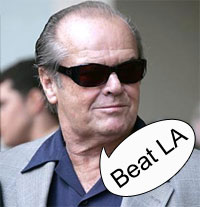Published June 4, 2010
In a Dorchester Reporter editorial this week, Bill Forry criticizes the Boston Police Department for distributing a flier that pictures suspected gang members in an effort to shame them.
The flyer — which includes mug shots of ten unnamed youths — has not been published by the Reporter, but is in wide circulation in the mass media. Commissioner Ed Davis told the Boston Globe that the purpose of the flyer is to make “the individuals who are responsible for the execution of a 14 year-old boy outcasts in their own neighborhood.” But the two teens who are now held without bail for Fomby-Davis’ murder are already in custody and the teens shown on the flyer are apparently not wanted by police. Sadly, if we want to shame someone, we have enough actual accused criminals in our mix whose faces and names can be published. Suggesting that these anonymous faces are also complicit in the killing runs the risk of further retaliatory violence and mistaken identity.
I have taken some criticism for raising the idea that BPD might be infringing on the civil liberties of suspected gang members.
“Let the police do their job,” writes Peter in the comments. “How about the ‘civil’ liberties of the many law abiding citizens of Dorchester, Roxbury and Mattapan — their right to ‘peace and tranquility’ or the right to their lives, their liberty and the pursuit of their happiness?”
And Dave Kay comments:
Are you claiming you are not defending these people?
These people destroy neighborhoods, schools, small businesses, families through their thugery and criminal activity.
Why is it, there are mug shots of these people?
Any written or spoken words should be used to eradicate them from society. They prevent impoverished inner city neighborhoods from moving ahead. They keep the black race in their cycle of poverty and crime. They take innocent youths, corrupt them, bring them into their gangs, and continue the endless cycle of inner city blight, poverty and failed education.
You should use your pen to help fix the problem.
Meghna posed this point of view to Peter Cannelos, the Boston Globe’s Washington bureau chief, on Friday’s Radio Boston. His response is illuminating:
I don’t have a lot of sympathy for those kinds of comments. This is what the police are trying to feed. It’s almost like a political issue, where they want to show the community that they’re out there. They want to show the community that they’re working hard.
Whenever you have somebody’s civil liberties who are infringed, other people say, What about the rights of the innocent people?
The bottom line is that we have legal processes for a reason, to determine who did what. And just because the police say that somebody is a gang member doesn’t mean that they are a gang member. And the community can then thump their chest over, What about all the innocent people? But look, the innocent may well be some of the people who police are passing around the pictures of.
Mr. Kay’s comments make my point for me. He is accusing me of sympathizing with gang members. I am not. The fact is, we don’t even know that these people are gang members — the police just say they are. And even Mr. Kay is falling for it. These young men are being shamed but are not even accused of a crime.
 If the Celtics beat the Lakers in the Finals, Mayor Antonio Villaraigosa will offer up Hollywood’s own Jack Nicholson to put on some green and shoot a tourism commercial for the city of Boston.
If the Celtics beat the Lakers in the Finals, Mayor Antonio Villaraigosa will offer up Hollywood’s own Jack Nicholson to put on some green and shoot a tourism commercial for the city of Boston.